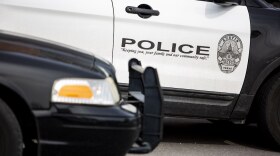Austin has voted to move forward with a pilot program to install license plate scanners at 40 intersections in the city to help track down stolen cars and aid in missing persons cases.
Privacy advocates had warned the cameras are akin to a warrantless surveillance program and that the data could be misused.
Under the agreement City Council approved Thursday, police will hold data from the scanners for just seven days. Council members initially debated a 30-day retention policy.
Council approved the overall program in September on the condition that the Austin Police Department seek input from residents and the Office of Police Oversight.
District 6 Council Member Mackenzie Kelly, who spearheaded the program, said she thinks the policy is the strongest in the state as a result of conversations with privacy and criminal justice advocates.
"Every week we have challenging decisions to make about all kinds of things in this city," she said. "I believe this program is going to assist our police officers [and] help solve crimes in this city."
The readers rely on so-called hotlists of individuals wanted in relation to felony cases or certain misdemeanors.
The city previously had a license-plate program, but it was discontinued when City Council cut and reallocated APD's funding in 2020.
The new pilot will require APD to periodically report to city commissions and council members. It also limits the personnel with access to the readers and allows for audits of the program. After a year, the program's effectiveness will be evaluated.













